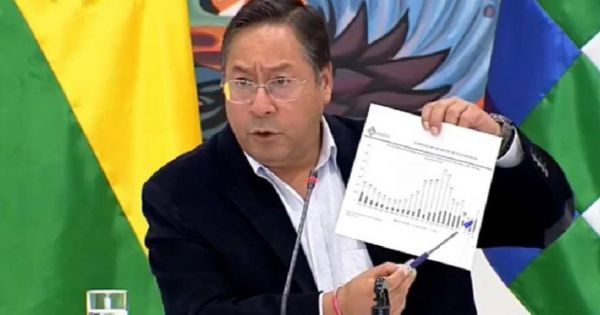Populist Bolivia running out of natural gas reserves; northern Argentina supply also threatened

On Tuesday, September 5th 2023 at 10:30 Coordinated Universal Time (UTC),
The president of Bolivia, Luis Arce, made a declaration on September 1st regarding the exhaustion of the nation's natural gas resources. As a consequence, the exports of natural gas to Argentina and Brazil will be disrupted, resulting in a significant economic setback for the country.

"We have reached the lowest point," Arce stated during a speech in Oruro, emphasizing that authorities and municipal leaders are no longer receiving funds from gas exports. This loss of revenue previously enabled them to support social welfare programs and settle debts.
Arce held the role of Economy Minister in Evo Morales' administration (2006-2017, and again in 2019). Throughout this time, the gas reserves accumulated by earlier neoliberal administrations were excessively exploited. Notably, significant gas fields were unearthed under the governance of conservative regimes.
Bolivia's gas exports skyrocketed to a staggering 60 million cubic meters daily, catering to the demand from Argentina and Brazil. This profitable venture generated an impressive sum of more than US$ 35 billion. Sadly, professionals in the field express concern over the lack of wise investment by Bolivia's populist administrations. As a result, it is now anticipated that by 2029, Bolivia will rely solely on gas imports to meet its domestic consumption needs.
This will pose an extra load for the South American nation without access to the sea, which already allocates funds for imported petrol and diesel, resulting in a combined expense of US$5.7 billion annually for hydrocarbons.
Given the diminishing natural gas reserves, Bolivia's government is in a rush to prevent penalties for failing to meet export agreements. As per the existing deal with Argentina, sales are expected to continue until 2026, and Bolivia would be obligated to compensate and face fines for failing to deliver the promised quantities, as was the case in the previous two years.
The administration led by President Arce aims to suggest an additional clause to this agreement. As per Agustín Gerez, the CEO of Enarsa, Argentina's national oil company, YPFB, Bolivia's state-owned company, has put forth a "flexible contract" where they will supply gas as long as they possess the necessary resources.
Gerez reportedly expressed concerns about the recent announcement from YPFB regarding their decision to enter into an interruptible contract. Essentially, this contract entails YPFB only supplying gas to Argentina's northern region if they have it available and withholding it if they do not, thus jeopardizing the entire gas supply for that area.
As per the Bolivian publication El Diario, President Arce failed to acknowledge and take responsibility for the hydrocarbon strategy initiated during Morales' administration in 2006, where oil was brought under state control.



